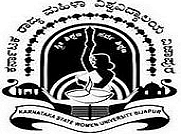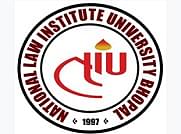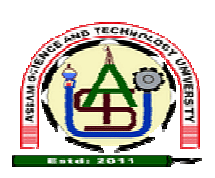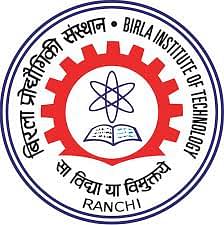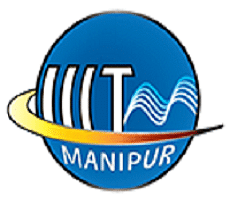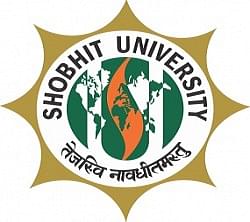Ph.D. in
Political Science: Admission, Syllabus, Eligibility, and Conclusion
Pursuing Ph.D. in Political Science college is a
prestigious academic endeavor that allows individuals to delve deep into the
intricacies of political systems, theories, and behaviors. This comprehensive
guide aims to provide a detailed overview of the admission process, syllabus
structure, and eligibility criteria for a Ph.D. in Political Science. The
document is structured to offer prospective candidates a clear and concise
understanding of what to expect throughout their academic journey.
Admission
Process for course
Admission Ph. D in political science Is as follow :
1. Application Procedure
The admission process for a Ph.D. in Political Science
typically begins with the submission of an application form, either online or
in paper format. This application form requires personal details, academic
history, and a statement of purpose (SOP). The SOP is a critical component
where candidates articulate their research interests, career goals, and reasons
for pursuing a Ph.D.
2. Entrance Examinations
Most universities require candidates to clear an entrance
examination. This exam tests the applicant's knowledge in political science,
research methodology, and related subjects. Some institutions might accept
scores from national-level exams such as the GRE or specific political science
entrance tests.
3. Interviews and Research Proposals
Shortlisted candidates are often required to attend an
interview, which assesses their academic potential and suitability for the
program. Additionally, applicants may need to submit a detailed research
proposal outlining their intended area of study. This proposal should
demonstrate a clear research question, objectives, methodology, and a review of
relevant literature.
4. Letters of Recommendation
Candidates are usually asked to provide letters of
recommendation from academic mentors or professionals who can vouch for their
intellectual capabilities and research potential. These letters should
highlight the candidate’s academic achievements, analytical skills, and
suitability for doctoral research.
Syllabus
Structure for course
The syllabus for Ph.D. Political Science is designed
to provide a thorough understanding of the field through coursework, research,
and practical experience. It generally spans over 3-5 years, depending on the
university and the candidate's research progress. The syllabus can be broadly
categorized into three phases: coursework, comprehensive exams, and
dissertation research.
1. Coursework
The initial phase involves completing coursework to build a
strong theoretical and methodological foundation. Core subjects often include:
Political Theory:
Study of classical and contemporary political theories, ideologies, and
philosophical underpinnings of political systems.
Comparative Politics:
Analysis of different political systems, institutions, processes, and policies
across various countries.
International Relations:
Examination of global political dynamics, foreign policy, international
conflicts, and cooperation.
Public Administration:
Insights into the principles and practices of public administration and
governance.
Research Methods:
Training in qualitative and quantitative research methods, data analysis, and
empirical research techniques.
2. Comprehensive Examinations
After completing the coursework, students must pass
comprehensive exams to demonstrate their mastery of the field. These exams
typically cover major areas of political science and may include written and
oral components. The purpose is to assess the student's readiness to undertake
independent research.
3. Dissertation Research
The final and most critical phase is the dissertation
research. Students select a research topic, conduct extensive research, and
write a dissertation under the guidance of a faculty advisor. The dissertation
should make a significant contribution to the field of political science. Key
steps in this phase include:
Literature Review:
Comprehensive review of existing research related to the chosen topic.
Research Design:
Developing a detailed research plan, including methodology, data collection,
and analysis techniques.
Data Collection and Analysis:
Gathering and analyzing data to test hypotheses and answer research questions.
Dissertation Writing:
Organizing findings into a coherent and well-structured dissertation.
Defense:
Presenting and defending the dissertation before a committee of experts.
Eligibility
Criteria for the course :
Eligibility for Ph. D political science is as follows
:
1. Academic Qualifications
To be eligible for a Ph.D. in Political Science, candidates
must hold a master's degree in political science or a related field from a
recognized institution. Some universities may also consider applicants with a
bachelor's degree, provided they have demonstrated exceptional academic
performance and research potential.
2. Minimum Marks
Most institutions require a minimum percentage or CGPA in
the qualifying degree. This threshold varies but is generally around 55-60%.
Candidates from reserved categories might receive some relaxation in these
criteria.
3. Research Experience
While not always mandatory, prior research experience can
significantly enhance a candidate's application. This experience can include
participation in research projects, internships, or publication of research
papers in academic journals.
4. Language Proficiency
Proficiency in the language of instruction (usually English)
is essential. Non-native speakers may need to provide proof of language
proficiency through standardized tests like TOEFL or IELTS.
5. Letters of Recommendation and SOP
Strong letters of recommendation and a compelling statement
of purpose are crucial. They provide insights into the candidate's academic
abilities, research interests, and motivation for pursuing a Ph.D.
Conclusion
Pursuing a Ph.D. in Political Science is a rigorous
and rewarding journey that requires dedication, intellectual curiosity, and a
passion for research. The admission process is designed to identify candidates
with the potential to contribute significantly to the field of political
science. The structured syllabus ensures that students acquire a comprehensive
understanding of political theories, methodologies, and practical applications.
Meeting the eligibility criteria is the first step towards embarking on this
academic path. Aspiring scholars should meticulously prepare their
applications, demonstrating their academic prowess, research capabilities, and
genuine interest in political science.





